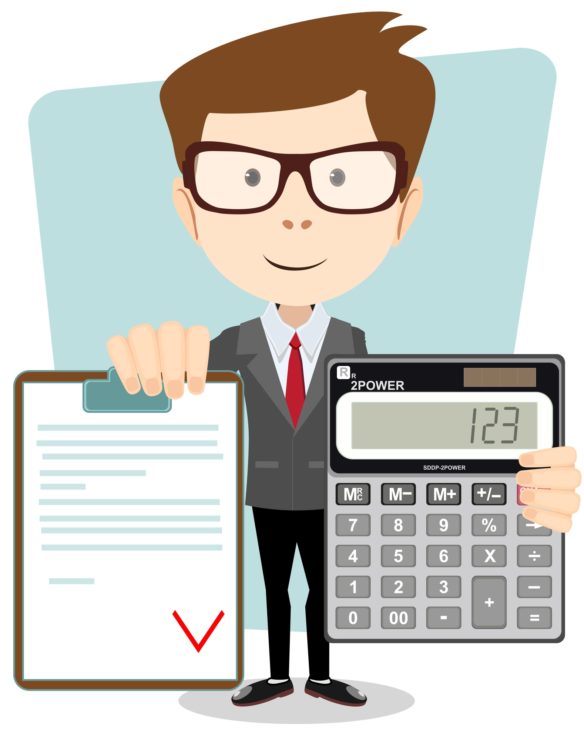What to Look for in an Cannabis Accountant
What to Look for in an Cannabis Accountant

Your cannabis business should have a team of professionals and advisors on which you can rely. Our cannabis business lawyers are often asked to recommend an accountant who works with cannabis businesses. Like choosing a good attorney, choosing a good accountant is essential to the success of your cannabis business.
Many cannabis investors own other businesses and may already have an accountant they trust. But because the laws governing the accounting profession do not offer much protection to Certified Public Accountants’ (“CPA”) working in the cannabis industry, some skilled CPAs choose not to work with cannabis businesses, while others simply do not want to spend the time required to develop the expertise related to cannabis business accounting.
Anyone evaluating whether an accountant is a good fit should ensure the accountant has a strong grasp of IRC 280E and cannabis accounting, all while keeping in mind the following three things.
Understand the Types of Accounting Professionals
The accounting profession includes several types of accountants and financial professionals. It is helpful to understand the core skills of three in particular: the CPA, the bookkeeper and the Enrolled Agent.
A CPA is a Certified Public Accountant. To qualify as a CPA one must take a certain number of accounting related courses, pass a rigorous examination and be licensed in at least one state. Only a CPA may audit, review and give an opinion of a business’s financial statements. The CPA gives assurances (i.e., “certifies”) that financial statements may be relied upon by third parties such as a bank, or potential investor.
Many CPAs perform bookkeeping services for clients. However, a bookkeeper does not have to be a CPA. The role of the bookkeeper is to review all transactions and assemble this information into useful financial information. Bookkeepers may also prepare state tax returns and other government filings.
Another category of accounting professional is the Enrolled Agent (“EA”). The EA may prepare tax returns and otherwise represent clients before the Internal Revenue Service. To qualify as an EA, a person must pass a comprehensive IRS exam or have experience working for the IRS.
By understanding an accountant’s background and professional certifications, a cannabis business will be better informed regarding the type of accountant best for the job.
Look for Honesty and Diligence
Let’s face it, this is the baseline for evaluating all professionals. Although it seems obvious, some accountants in the cannabis industry fall short. Here are some red flags:
Your accountant does not respond to you. Skilled accountants are busy and need to balance their work so all clients are treated fairly. It may take a skilled accountant longer to complete a project than you wish. However, an accountant that does not call you back or keep you informed simply cannot help your business.
Your accountant takes shortcuts. This is often marketed as “creativity.” The cannabis industry is fast-paced, takes guts and is highly regulated. It is understandable that you want to move your business forward as quickly as possible. It is tempting to “fudge” representations. However, making misleading statements on tax returns or books and records or bank applications, or otherwise omitting key information, hurts your business and its owners. A skilled accountant will protect its clients from these temptations.
Your accountant does not understand legal entities. The fundamentals of accounting require reporting financial operations by legal entity, not merely by business group. For example, the same group of investors may own several cannabis dispensaries. If each dispensary operates as a separate legal entity, separate books and records must be kept for each legal entity. This is not required not only for tax reporting purposes but it is essential to record the information necessary to comply with a state’s licensing requirements.
Transactions between commonly owned legal entities should reflect actual business practices and legal agreements and they should be documented with legitimate contracts. It is the legal agreements and business practices that dictate how a transaction is recorded on the books, not the other way around. Recording a transaction as a loan between two legal entities is only proper if supported by a valid loan agreement. Payments between two legal entities for management services must be supported with a management services agreement.
Finally, restructuring legal entities is not a function of accounting entries but a function of state law. For example, the merger of two corporations must be reflected in corporate governance documents such as board of director resolutions and filings with the Secretary of State. Unless such corporate formalities are followed, the merger will not be recognized by state law. Only after the merger is recognized under state law should an accountant record this transaction. Beware of an accountant that records transactions unsupported by legal documentation.
Choose an Accountant with a Strong Professional Network
Skilled professionals know other skilled professionals. A good accountant will look out for your interests and refer you to another professional when appropriate. An accountant can help you with budgeting, minimizing costs, evaluating financial opportunities and complying with tax and financial reporting. However, your accountant should not prepare legal documents, or create legal entities. Your accountant also should generally avoid taking a financial interest in your company, underwriting insurance policies, and/or acting as your broker.
There are many skilled CPAs, Bookkeepers and Enrolled Agents working in the cannabis industry and it is possible to find one is right for your business. A good accountant can assist you in meeting your financial goals, but in the end, nothing is more important in running your cannabis business than your own judgment.
Go to Source
Powered by WPeMatico
